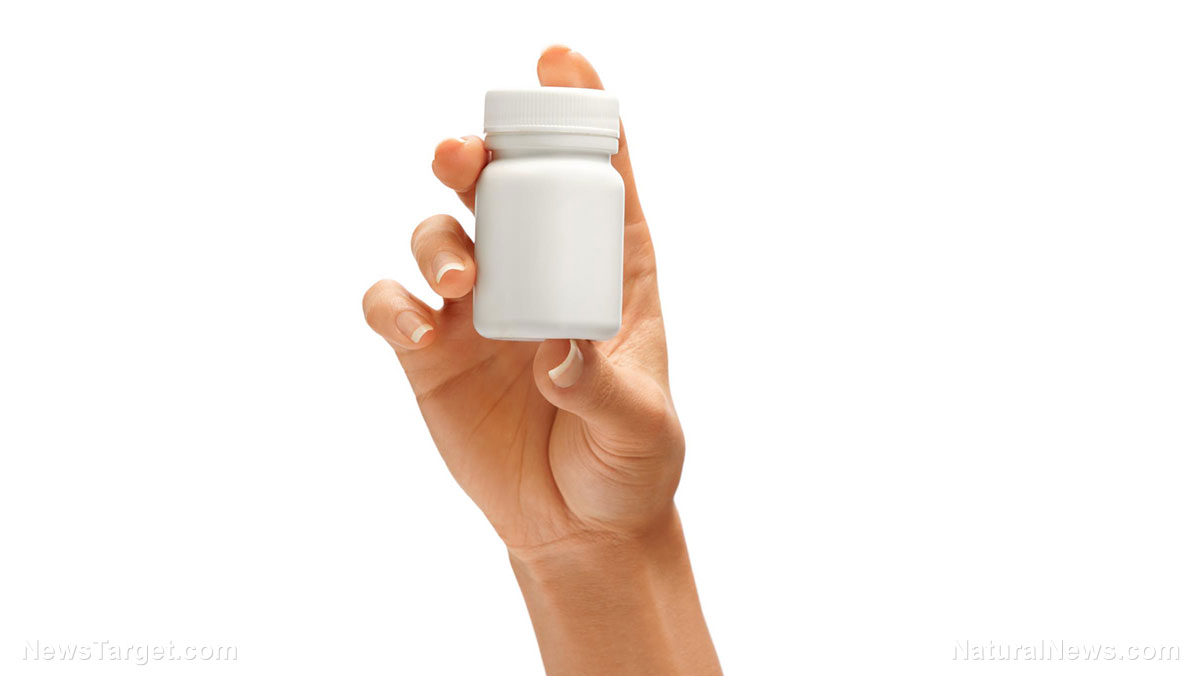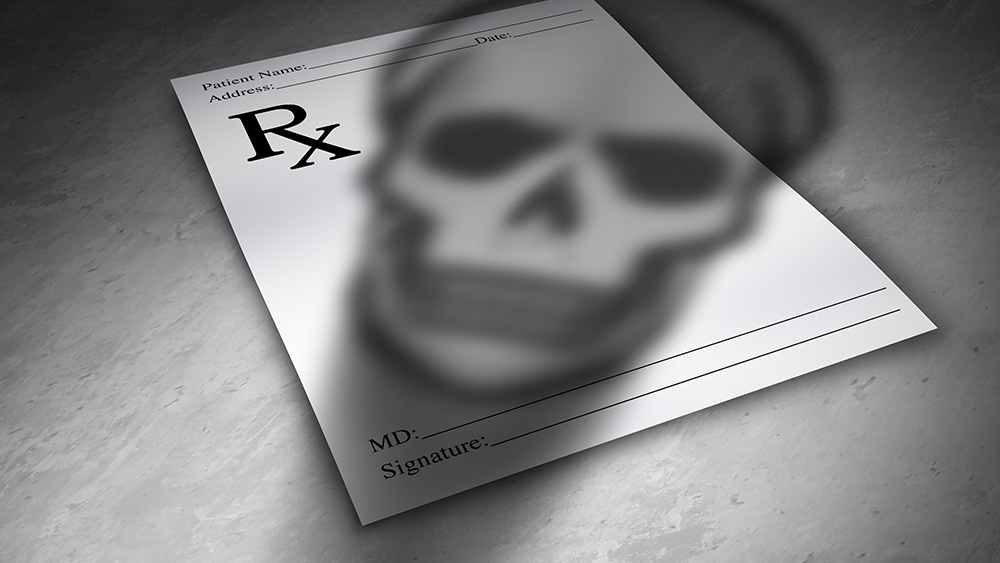More than 9 million older Americans suffer from adverse drug reactions EACH YEAR; why are we not being told of the dangers of pharmaceuticals?
06/18/2018 / By Edsel Cook

If you are one of the millions of older Americans who suffer severe reactions to the medication they are taking, you might be wondering by now what your healthcare provider isn’t telling you. An article in Natural Health 365 states that so-called medical professionals are either unaware of the risks of the drugs they recommend or are deliberately keeping those risks hidden.
For decades, the pharmaceutical industry and the sick care system have been conniving to force people to take their products. Their actions have been masked by public ignorance, so the official figure of 9.6 million older Americans is much lower than the real rate of adverse reactions.
It does not help that healthcare providers are contributing to the crisis. Some of them do not fully understand the risks of the drugs they prescribe.
Others avoid bringing up the risks to their patients. They keep mum even though they know that the pharmaceuticals in question will make things worse instead of better. (related: CONFIRMED: Antidepressants and other drugs cause dementia.)
Commonly-prescribed pharmaceuticals are making our ailments worse
One example of a dangerous pharmaceutical is digoxin, a digitalis that is prescribed to maintain the speed and strength of the patient’s heartbeat. But every year, 28,000 people who take this medication experience cardiac toxicity, where the heart gets damaged due to dangerous chemicals.
To make matters worse, around 40 percent of the people who are using digoxin do not really need the pharmaceutical. And yet the drug was prescribed to them by their healthcare provider.
Another example concerns nonsteroidal anti-inflammatory drugs (NSAIDs). A class of painkillers and anti-inflammatory pharmaceuticals, they are commonly prescribed to people who suffer from arthritis.
Every year, 41,000 older adults are rushed to the hospital because of NSAID-caused ulcers. Of that number, 3,300 lose their lives because of the pain relief medication they were taking.
The most chilling development involves the 163,000 older Americans who reported suffering dementia-related symptoms after taking over-the-counter pharmaceutical drugs. In the state of Washington, 46 percent of patients who experienced drug-related mental problems traced their impairments to their heavy use of sleeping pills or tranquilizers.
High blood pressure medication accounted for another 14 percent of these patients, while 11 percent originated from antipsychotic medication. Furthermore, a previous study has also established a connection between antipsychotic drugs and Parkinson’s disease.
These dangerous drugs are widely used by aging individuals. Their side effects and harsh reactions bear some resemblance to some of the natural signs of growing older. Many cases have therefore slipped under the radar.
The symptoms of medication-induced dementia include confusion, depression, disorientation, fatigue, hallucination, a lack of comprehension, and memory problems. Many of these signs are similar to those displayed by other forms of dementia, such as Alzheimer’s disease.
Instead of taking dangerous drugs, adopt natural and healthy living practices
Some of these dangerous drugs include common names like Benadryl, Demerol, Elavil, Talwin (Paentazocine), Valium, and Xanax. They are used for a variety of “treatments” such as allergy suppression, depression treatment, and anxiety relief.
Taking more than one of them can increase the likelihood of medication-induced dementia, especially since they dehydrate your body and leave you vulnerable to chronic diseases.
Instead, go for non-pharmaceutical options that can improve and maintain your health. Increase your consumption of organic fruits and vegetables; they are nutritious and they replenish the amount of water in your body. Whenever possible, get locally-grown food from trusted sources.
Adopt an active lifestyle that involves regular exercise and daily stretching, or take up practices like deep breathing and meditation that reduce your emotional and mental stress.
Find out what other pharmaceutical drugs you should avoid at DangerousMedicine.com.
Sources include:
Tagged Under: Big Pharma, Big Pharma medicine, dangerous drugs, dangerous pharmaceuticals, drug cartels, lies and death from big pharma, Pharmaceutical industry, pharmaceuticals, side effects


















